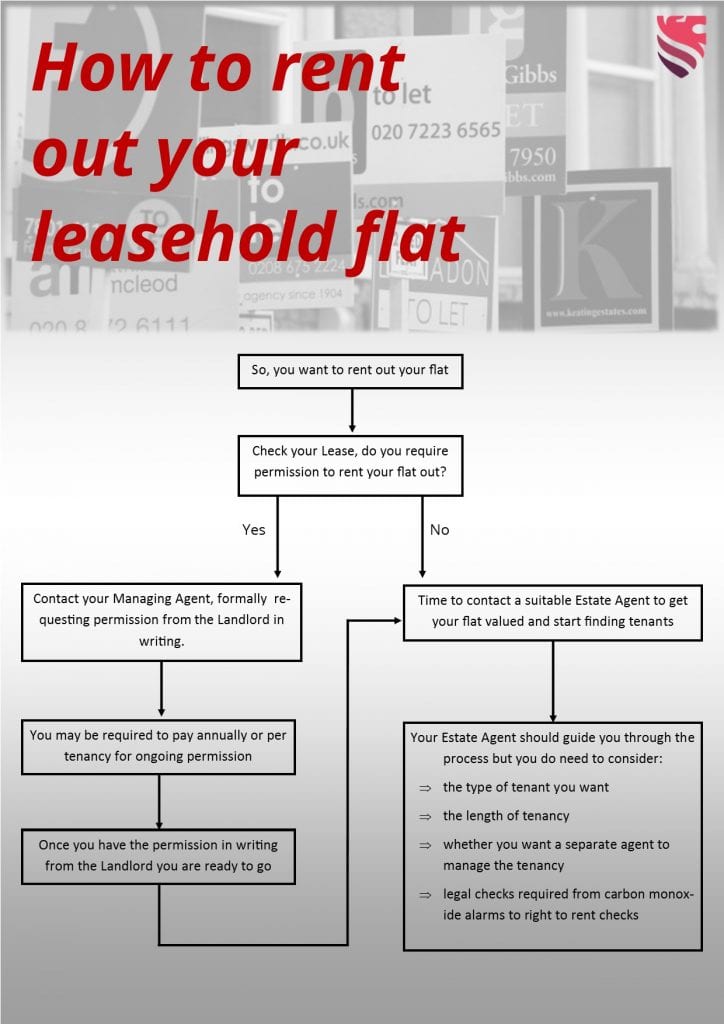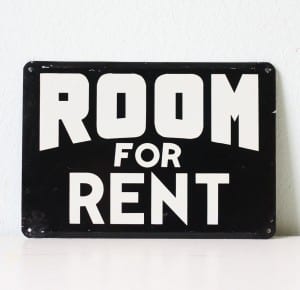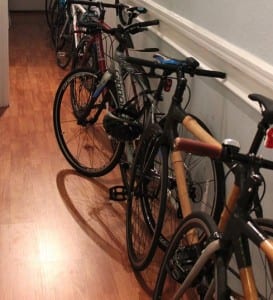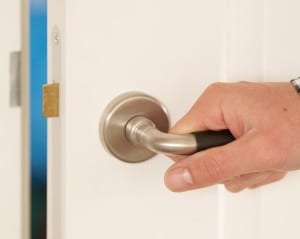It is estimated that over 4 million properties in the UK are privately rented to tenants. With over 25 million properties in the UK, this equates to nearly 1 in 6 flats being rented. Consider this, if you live in a property with 24 flats, 4 of them will be let out to private tenants (not including social housing). From our experience in the buildings under our management, we would suggest this number is higher across London.
With that in mind, we will guide you through the process of renting out your flat, the permissions needed and what you need to be aware of before renting out your flat.
Am I allowed to rent out my Leasehold flat?
This question is best answered by the terms of your Lease. Typically, you will have a clause stating that you must first gain formal permission from your Landlord before renting your flat out. To be clear, there is no ‘standard’ clause in a Lease covering this issue so your first action must be to check yours.
It may also be an issue for your mortgage provider (if you have one), its best to check the conditions on your mortgage as you may be required to seek permission, take out additional insurance or possibly pay an additional fee.
Below is a flow diagram showing how to work with the Landlord and your property management company in order to rent out your flat:
What do I need to consider before renting my flat out?
Landlords in London now have a number of requirements before they can rent their flat out. Below we discuss some of the concerns and obligations but it is important to ensure you are legally covered before agreeing a tenancy.
Gas / Electrical Checks:
Under the Gas Safety (Installation and Use) Regulations 1998 and Electrical Equipment (Safety) Regulations 1994, you are obligated to inspect and test on a regular basis your appliances. This will need to be discussed with the person or company managing your flat prior to the tenancy commencement to ensure there is a timeframe in place for these checks.
Fire Safety:
In accordance with the Furniture and Furnishings (Fire) (Safety) Regulations 1988, the items you provide within your flat have to meet certain standards including appropriate labelling. You must also ensure all items are in good condition in order to prevent injury or ill health to your tenants.
EPC (Energy Performance Certificate):
Every property that is rented out requires an EPC. Whilst this can be arranged through your letting agent, there are companies that can carry out this work for you. It is essential to obtain your EPC prior to marketing the property however.
The Smoke and Carbon Monoxide Alarm (England) Regulations 2015:
From October 1st 2015, Landlords must ensure that they install a smoke alarm on every floor of their properties. Again, this has to be completed prior to the tenancy commencing so it is essential that this is in place first.
The Right to Rent
For Landlords in London, from the 1st February 2016, Landlords are required to check the immigration status of prospective tenants under The Immigration Act 2014. This is the Landlords responsibility so it is a legal requirement to carry out checks on any persons over the age of 18 before agreeing any tenancy with that person.
What should I be wary of with my tenants:
Now that we have covered your responsibilities prior to the tenancy commencing, we take a look at the 5 most common issues when have a tenant that involves the Managing Agent, you as a Landlord as well as your neighbours.
 1) Noise complaints
1) Noise complaints
We understand that people are different and one of the issues that can arise whilst having tenants in your flat is a noise complaint. Your Lease will typically include stipulations on noise, possibly stating that no music, unreasonable noise levels are to be heard between the hours of 11pm – 7am. Whilst this may seem petty, owning and living in a leasehold flat makes you or your tenants part of a community and therefore you must observe communal rules. It is best to make sure your tenants are clear on this issue to prevent any future issues arising.
 2) Illegal subletting
2) Illegal subletting
Another issue we see from time to time is illegal subletting. If you rent a property to a two working professionals for example, would you be shocked to turn up to inspect the flat and find two more unknown individuals living in your flat? We understand with the influence of such websites as Airbnb that subletting is an attractive proposition however regular inspections of your flat will ensure only the individuals on the tenancy agreement are living in the flat itself.
 3) Tenants with Pets
3) Tenants with Pets
Based on our previous blog about getting permission for dogs, it is clear we are a nation of pet lovers. This is completely acceptable but first the correct permissions need to be granted. You as a landlord needs to ask your Freeholder for permission typically, then providing your tenants with permission to keep a pet before the tenants go and buy anything. It’s important to have a clause in your permission about revocation too, as we have mentioned, living in a flat is a community concern and if that pet is causing a nuisance to the community, it may have to go.
 4) Keeping Bicycles
4) Keeping Bicycles
We know that you are all doing you part to reduce your carbon footprint these days and the influx of bicycles around buildings is a positive sight. However, we regularly see bicycles that have been left on the communal stairs, leaning against doors, tire marks up our freshly painted walls etc. It not only breaks fire safety law by leaving a bicycle in the hallway but it can consistently cost money to repair walls damaged from bicycles being dragged upstairs. It needs to be made clear to tenants what the rules are regarding having a bicycle and any damage caused by them. The last thing you need as a Landlord is your neighbours complaining about your tenants damaging the building.
 5) Right of Access
5) Right of Access
Thankfully not that common an issue however some London property conversions are such that the only access to say, the roof or the basement, is through a flat. This is clearly stated in your Lease (which I am sure you have read multiple times by now) and you may have had experience of providing access when you lived in the property. This can be quite a shock to tenants however and gaining access to repair a matter can prove difficult. The easiest way to resolve this issue is to make it clear on commencement that any repairs the Managing Agent requires may involve co-operation and access through the flat.
Whilst renting out your leasehold flat in London can be a lucrative venture, it is important to consider the impact it has on other parties, your neighbours and friends. With proactive property management and clear lines of communication with the tenants, successful tenancies are achievable.
Related: 20 Essential facts about owning a leasehold flat








